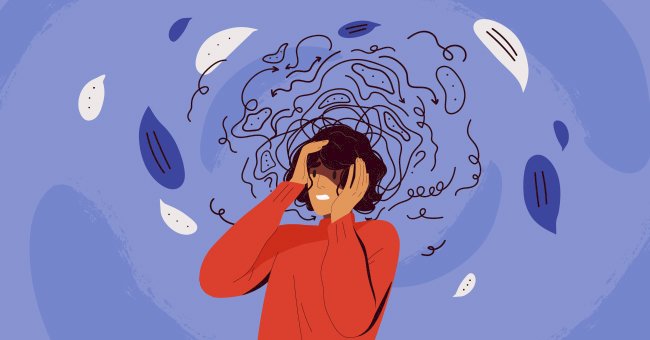
Exploring How Anxiety Manifests Physically
When you think of anxiety, you can picture panic attacks and having difficulty breathing, but for some people, these aren’t the only symptoms they experience. When you’re living with chronic anxiety, your physical health is affected.
When your body lives in a constant state of stress, your body produces hormones to keep it functioning in a constant state of fight-or-flight. Sometimes you’re experiencing symptoms, but the doctors can’t figure out what’s causing your discomfort.
When your doctor struggles to find something to resolve your symptoms, it can make your symptoms worse. It becomes a vicious cycle that leaves you and your family distressed!
1. Your Heart

Photo by Afif Kusuma on Unsplash
We all know anxiety can give you heart palpitations because of the adrenaline released in your body due to the fight-or-flight response. But some people’s heart palpitations can easily turn into pain.
Dealing with chronic anxiety can put you at risk for worsening existing heart conditions and increase your chances of heart-related emergencies. This is because chronic anxiety leaves your heart under constant strain when not controlled.
2. Digestive System

Unsplash
Sometimes when you’re stressed out, you might find it difficult to sit down and eat something because your tummy feels like it’s in knots. You might even feel sick because of it.
Some people experience nausea, vomiting, stomach aches, and diarrhea when going through a bout of anxiety. Trying to use calming techniques like distraction or breathing exercises to ease anxiousness will help get your appetite back!
3. Immune System

Photo by Olga Kononenko on Unsplash
Your immune system is supposed to help fight infections to keep you healthy, and it needs to rest to keep you safe. If you suffer from anxiety, your immune system is put under persistent strain, which weakens it over time.
This could be the reason why you get sick often, even when you get the yearly flu vaccine! Caffeine is an anxiety trigger, and when you can avoid it, you should; it might allow your body some time to relax and contribute to strengthening your immune system!
4. Respiratory System

Unsplash
Many people experience difficulty breathing when they’re in stressful situations; when you breathe too quickly, it can easily lead to a panic attack. It can lead to dizziness and even fainting because of the low quality of oxygen your brain gets.
If you already suffer from chronic respiratory diseases like asthma or emphysema, anxiety could increase the number of respiratory emergencies. It can drive up your medical bills and your anxiety rockets as well!
5. Muscle Tension

Photo by Afif Kusuma on Unsplash
Stressing yourself out can tense out your muscles and leave you with back and neck pain and can even leave you with constant headaches. Many start treating it with pain medication and hot or cold compress therapies to treat the pain.
But after some time, dealing with the pain becomes difficult, and the medication doesn’t work. If you’re using anti-inflammatory drugs, you could be at risk for developing an ulcer, which is painful and puts your body under further stress.
Controlling Your Anxiety

Unsplash
Sometimes these symptoms can easily be alleviated by practicing calming techniques like breathing or meditation. But if you find yourself unable to control the symptoms and have difficulty calming yourself down, you might benefit from talking to a licensed therapist.
A therapist can help guide you on distracting techniques and even help you find a medication suitable for your anxiety. The key to treating your anxiety is recognizing the symptoms and keeping it from spiraling out of control.